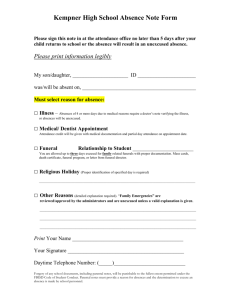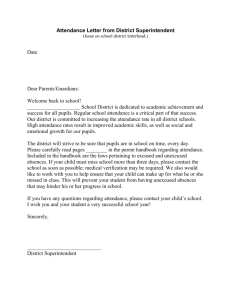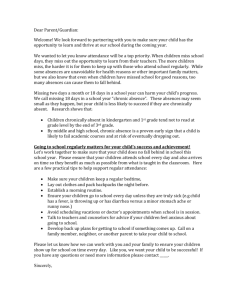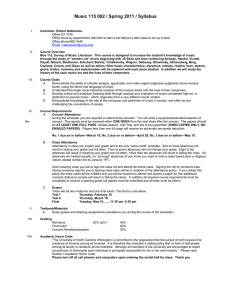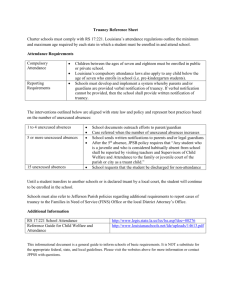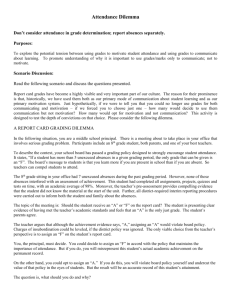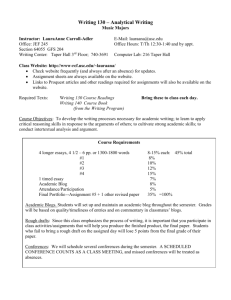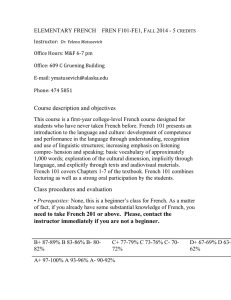Attendance Policy - University of San Diego Home Pages
advertisement
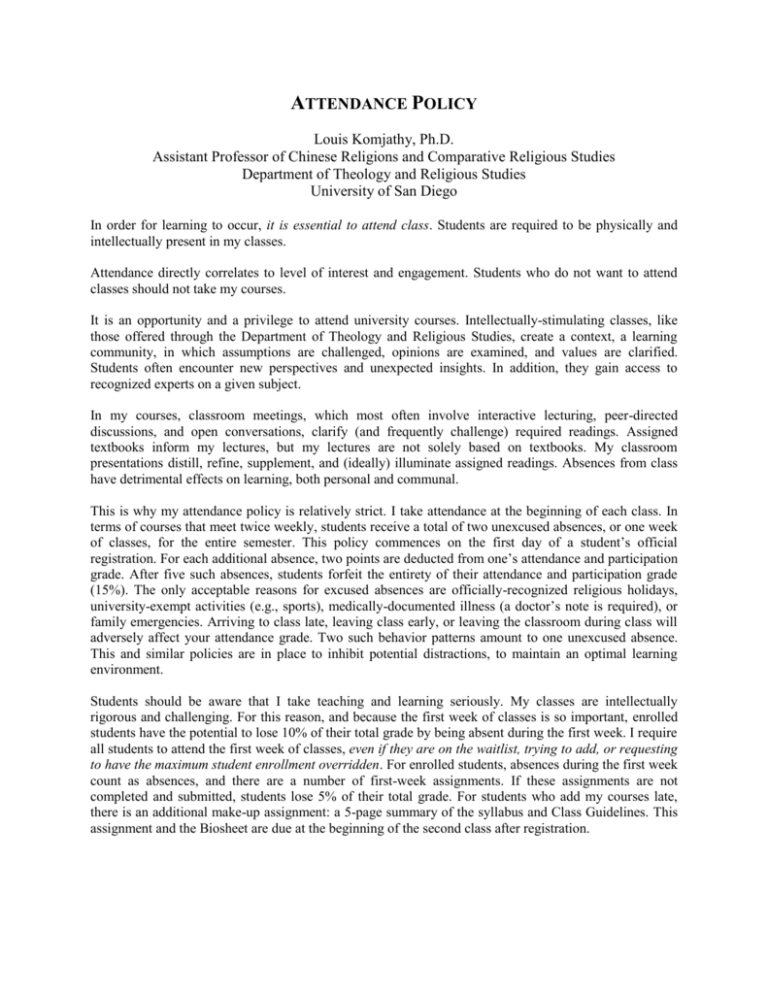
ATTENDANCE POLICY Louis Komjathy, Ph.D. Assistant Professor of Chinese Religions and Comparative Religious Studies Department of Theology and Religious Studies University of San Diego In order for learning to occur, it is essential to attend class. Students are required to be physically and intellectually present in my classes. Attendance directly correlates to level of interest and engagement. Students who do not want to attend classes should not take my courses. It is an opportunity and a privilege to attend university courses. Intellectually-stimulating classes, like those offered through the Department of Theology and Religious Studies, create a context, a learning community, in which assumptions are challenged, opinions are examined, and values are clarified. Students often encounter new perspectives and unexpected insights. In addition, they gain access to recognized experts on a given subject. In my courses, classroom meetings, which most often involve interactive lecturing, peer-directed discussions, and open conversations, clarify (and frequently challenge) required readings. Assigned textbooks inform my lectures, but my lectures are not solely based on textbooks. My classroom presentations distill, refine, supplement, and (ideally) illuminate assigned readings. Absences from class have detrimental effects on learning, both personal and communal. This is why my attendance policy is relatively strict. I take attendance at the beginning of each class. In terms of courses that meet twice weekly, students receive a total of two unexcused absences, or one week of classes, for the entire semester. This policy commences on the first day of a student’s official registration. For each additional absence, two points are deducted from one’s attendance and participation grade. After five such absences, students forfeit the entirety of their attendance and participation grade (15%). The only acceptable reasons for excused absences are officially-recognized religious holidays, university-exempt activities (e.g., sports), medically-documented illness (a doctor’s note is required), or family emergencies. Arriving to class late, leaving class early, or leaving the classroom during class will adversely affect your attendance grade. Two such behavior patterns amount to one unexcused absence. This and similar policies are in place to inhibit potential distractions, to maintain an optimal learning environment. Students should be aware that I take teaching and learning seriously. My classes are intellectually rigorous and challenging. For this reason, and because the first week of classes is so important, enrolled students have the potential to lose 10% of their total grade by being absent during the first week. I require all students to attend the first week of classes, even if they are on the waitlist, trying to add, or requesting to have the maximum student enrollment overridden. For enrolled students, absences during the first week count as absences, and there are a number of first-week assignments. If these assignments are not completed and submitted, students lose 5% of their total grade. For students who add my courses late, there is an additional make-up assignment: a 5-page summary of the syllabus and Class Guidelines. This assignment and the Biosheet are due at the beginning of the second class after registration.

